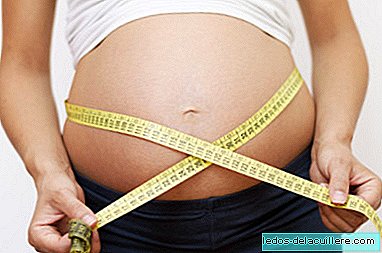
When children begin to introduce complementary feeding, parents should be aware of any symptoms that could manifest a food allergy, those that top the list of the most frequent allergies in children. According to data from the Spanish Society of Clinical Immunology and Pediatric Allergy (SEICAP), between 4% and 8% of Spanish children suffer from one.
In light of the results of research carried out in recent years, the key could be the delay in the age of introduction of some of the most allergenic foods. Precisely, avoiding their consumption until they are older could lead to the appearance of allergy. A new study by researchers from the Imperial College of London (United Kingdom) suggests that we should introduce at least egg and peanuts in the diets of babies at even younger ages to reduce their risk of developing food allergies.

This is the largest analysis of the evidence made after analyzing 146 studies (with a total sample of more than 200,000 participants) on the effect of feeding babies with allergenic foods such as eggs, peanuts, wheat and fish.
According to the results of the study published in The Journal of the American Medical Association, giving eggs between four and six months had a 40 percent lower risk of allergy to the egg compared to children who tried egg later in life.
As for peanuts, the result is more surprising. They concluded that giving peanuts, between four and eleven months can reduce the risk of developing allergy to that food in a 70 percent.
For their part, they also found that introducing gluten at earlier ages is not related to an increased risk of developing celiac disease.
However, the study authors warned that eggs and peanuts should not be introduced into the diet of those babies who already have a food allergy or other allergic conditions, such as eczema.
Regarding the consumption of peanuts and the high risk of choking that they entail along with other nuts, they recommended avoiding them in young children. "If you decide to feed a baby with peanuts, it is better to give peanut butter," they propose.
At four months?
The WHO recommendation is to maintain exclusive breastfeeding for the first six months of life and then begin to gradually introduce solid foods to supplement breastfeeding.
Therefore, to offer food to children from four months contradicts that recommendation. However, the study authors consider that more studies are needed to give a precise recommended age of introduction of eggs and peanuts.
Nor is it clear that advancing the introduction of certain foods will prevent the epidemic of food allergy suffered by many children. Some will continue to develop food allergies despite following new eating guidelines.
A window of opportunity
The important thing, as experts agree, is that there seems to be a window of opportunity in the first year of life where exposure to foods such as eggs and peanuts decreases the risk of allergy to these foods.












